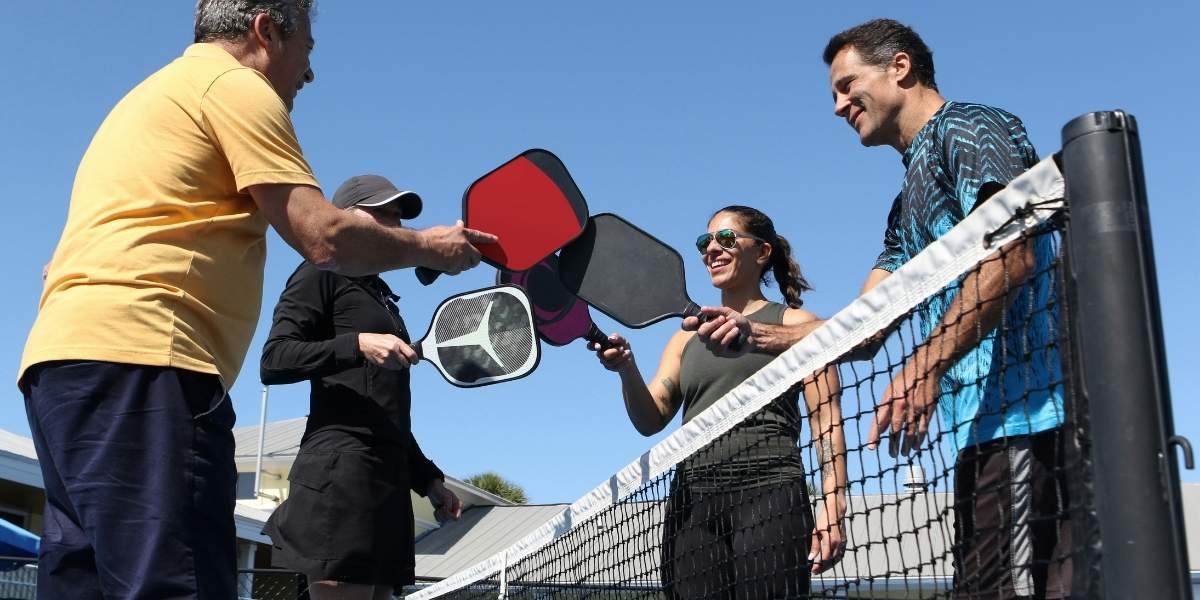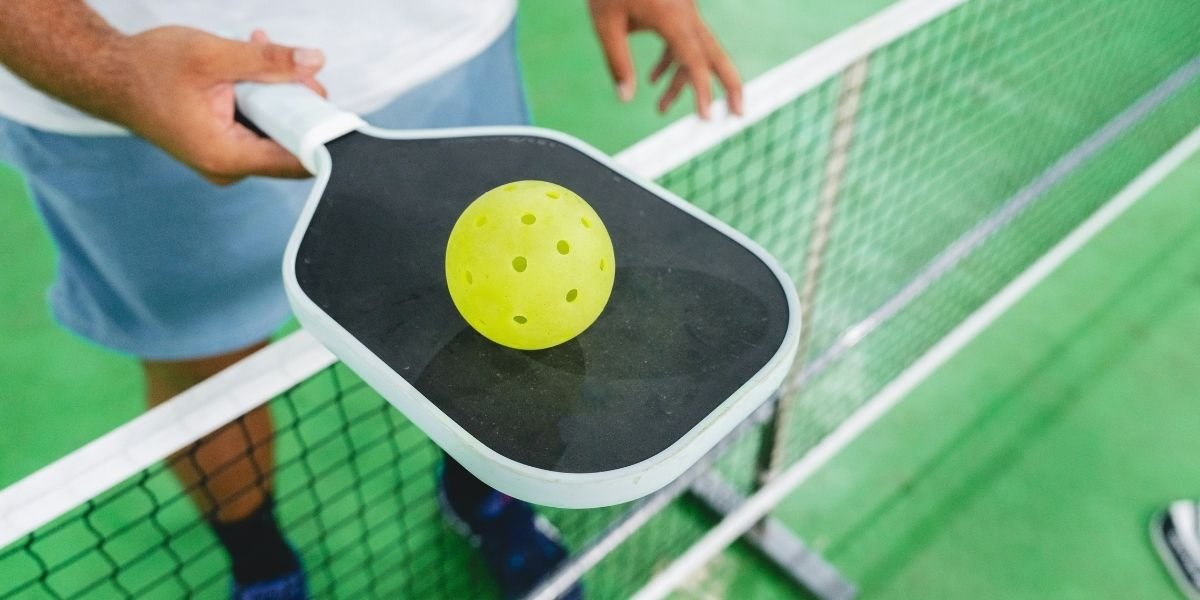Pickleball and mental health form an unexpected but powerful alliance in the wellness space. As participation surges across the United States, the sport is being recognized not only for its physical benefits but also for its positive impact on emotional well-being. From stress reduction to social connection, pickleball offers a unique blend of movement and mindfulness that supports mental health in meaningful ways.
With millions of Americans engaging in pickleball each year, the sport has evolved into more than a recreational pastime. Its accessibility, fast-paced nature, and community-driven culture create an environment where happiness and resilience can flourish. Whether played in local parks, retirement communities, or corporate wellness programs, pickleball is proving to be a valuable tool for emotional balance.
Why Pickleball Feels Like a Mental Health Reset
Pickleball provides a reliable outlet for stress relief. The game’s moderate intensity promotes cardiovascular activity without overwhelming the body, triggering the release of endorphins that naturally elevate mood. Unlike high-impact sports, pickleball does not demand elite athleticism or rigorous training, making it approachable for a wide range of participants.
The playful rhythm of the game, marked by quick exchanges, light competition, and frequent laughter, contributes to a sense of emotional ease. This low-pressure atmosphere encourages regular participation, which is essential for maintaining mental wellness over time. The sport’s structure allows for spontaneous play or scheduled matches, offering flexibility that supports consistent engagement.
In addition to physical movement, pickleball provides a mental break from daily stressors. The game’s immersive nature helps redirect attention away from worries and toward the present moment. This shift in focus can reduce mental fatigue and promote a sense of clarity.
Movement, Mindfulness, and the Pickleball Effect
Pickleball engages both body and mind. The sport requires sustained focus, rapid decision-making, and present-moment awareness. These elements naturally foster mindfulness, a practice known to reduce anxiety and improve emotional regulation.
Many players describe the experience as meditative. The repetitive motion, the sound of the paddle, and the flow of the game create a calming effect that supports mental clarity. Outdoor play further enhances this benefit by offering a break from digital distractions and indoor routines. The combination of fresh air, sunlight, and physical activity contributes to a holistic sense of well-being.

Mindfulness practices have long been associated with lower cortisol levels and improved mood stability. Pickleball delivers these outcomes through active engagement rather than passive observation, making it a dynamic tool for emotional support. The sport’s ability to anchor attention in the moment helps reduce rumination and fosters a more balanced mental state.
How Pickleball Builds Confidence Without the Pressure
Confidence plays a critical role in mental health, and pickleball supports its development through achievable progress. The sport’s gentle learning curve allows participants to experience success early, reinforcing motivation and self-worth. Unlike sports that require years of training to master, pickleball offers immediate feedback and visible improvement.
Small goals, such as improving technique or mastering a serve, create a positive feedback loop. Each accomplishment builds momentum, which can extend into other areas of life. For individuals managing depression or low energy, this sense of progress can be especially impactful. The ability to set and achieve goals fosters a sense of agency and control.
Routine also contributes to emotional stability. Regular pickleball sessions offer structure and predictability, providing something to anticipate and enjoy. This consistency supports mood regulation and fosters a sense of purpose. Whether playing weekly with a group or joining a local league, the rhythm of regular play can anchor emotional wellness.
The Social Side of Pickleball: Connection That Heals
Social interaction is a cornerstone of emotional resilience, and pickleball excels in creating opportunities for connection. Most games are played in doubles, encouraging communication and camaraderie. These interactions help reduce feelings of isolation and promote a sense of belonging.
Pickleball communities are known for their inclusivity. Newcomers and experienced players alike are welcomed, creating a supportive environment that minimizes judgment and fosters confidence. Friendships often extend beyond the court, with players gathering for post-game conversations, community events, and local tournaments.
In a time when loneliness is increasingly recognized as a public health concern, the social benefits of pickleball offer a meaningful counterbalance. The sport’s ability to bring people together in a positive, low-stress setting makes it a valuable tool for emotional well-being. Shared experiences on the court can lead to deeper connections off the court, strengthening social networks and emotional support systems.
Pickleball for All Ages: Why Inclusivity Matters for Mental Health
Inclusivity is one of pickleball’s greatest strengths. The sport accommodates a wide range of ages, body types, and skill levels, making it accessible to nearly everyone. This openness reduces intimidation and encourages participation, which is essential for mental health support.
Older adults benefit from pickleball’s low-impact nature, which allows for safe physical activity without excessive strain. Individuals with limited mobility find the smaller court and slower ball speed manageable, while those facing emotional challenges appreciate the welcoming atmosphere. The sport’s adaptability makes it suitable for rehabilitation, stress management, and social engagement.
A systematic review found that pickleball participants, particularly those over 50, reported improvements in life satisfaction, happiness, and stress reduction. These findings underscore the sport’s potential as a mental health resource across demographics. Programs that integrate pickleball into community wellness initiatives are seeing increased participation and positive feedback.
From Stress to Joy: What Regular Play Can Do for Mood
Pickleball is not a substitute for professional mental health care, but it serves as a powerful complement. The sport offers movement, connection, and joy, three pillars of emotional wellness. Its rise reflects a broader shift in how Americans approach self-care, favoring activities that feel good, fit into daily life, and support long-term well-being.

As awareness grows, pickleball is likely to become a fixture in community health programs, retirement centers, and workplace wellness initiatives. The sport’s ability to deliver consistent emotional benefits through accessible play makes it a valuable addition to any wellness routine.
For those seeking a way to reduce stress, build confidence, and experience genuine joy, pickleball offers more than just a game. It offers a path to emotional balance and lasting happiness, one paddle swing at a time.







